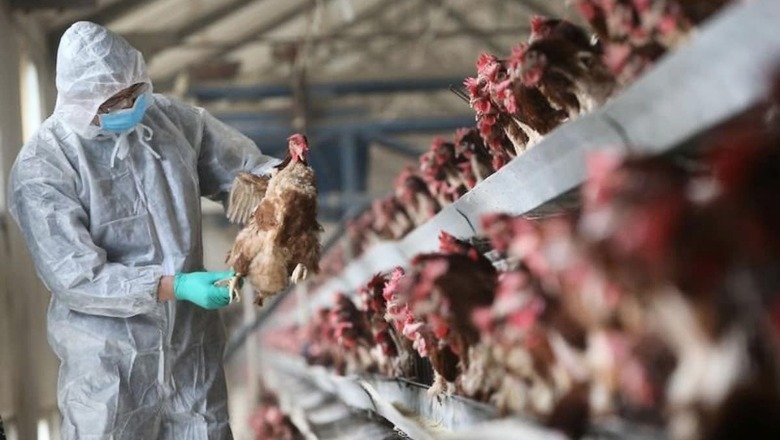
views
An 11-year-old boy died at Delhi’s AIIMS on Tuesday due to bird flu, becoming the first H5N1 avian influenza death this year. All staff in contact are under isolation, an official said.
In January, several states had reported deaths of birds, including crows and migratory species, forcing authorities to get samples tested for the avian influenza virus. Bird flu was confirmed in Kerala, Rajasthan, Madhya Pradesh, Haryana, Himachal Pradesh and high alert was sounded in Maharashtra.
According to reports, samples from Rajasthan, Madhya Pradesh, and Kerala had tested positive for the A (H5N8) strain of the virus, while samples from Himachal Pradesh had shown the presence of A (H5N1).
Bombay Veterinary College Dr AS Ranade was quoted by a national daily in January as saying that the chances of the H5N1 virus infecting humans is comparatively low in India as compared to South East Asian countries, mainly because of the difference in culinary habits.
“The virus dies immediately if exposed to temperatures over 70 degrees Celsius. Unlike in South East Asian countries, both meat and eggs in India are eaten well cooked, which sees them being exposed to over 100 degrees Celsius. Thus the chances of humans contracting the virus from eating chicken and eggs is extremely rare,” he said.
Bird flu or avian influenza is the name used to describe a viral infection that is reported mostly in birds, but has the potential to affect humans and other animals. The most common strain of the virus that causes severe respiratory disease in birds is H5N1; various other strains like H7, H8 too, cause infection.
Read all the Latest News, Breaking News and Coronavirus News here.


















Comments
0 comment